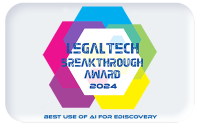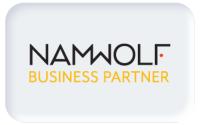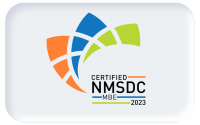TCDI Talks
Home / Webinars / TCDI Talks / Should I Use Gen AI | TCDI Talks: Episode 4
TCDI Talks with Altumatim | Episode 4: Should I Use Gen AI?
About TCDI Talks with Altumatim: Episode 4
Should you be using Gen AI? Experts from TCDI and Altumatim answer this question during Episode 4 of TCDI Talks. Join Dave York and David Gaskey as they explore why eDiscovery teams may be hesitant to implement this new technology and discover real-world use cases that can help build your confidence moving forward.
Also, we’d like to take a moment to recognize that September is Blood Cancer Awareness Month. TCDI is proud to support the Leukemia & Lymphoma Society by sponsoring Triad Light the Night on October 12, 2024.
Episode 4 Transcript
0:11 – Dave York:
Well, good morning everyone, and welcome to the fourth edition of TCDI Talks. I’m Dave York with TCDI, and I’m joined by David Gaskey at Altumatim. David, great talking to you as always.
0:25 – David Gaskey:
Yes, glad to be here.
0:27 – Dave York:
And before we jump into questions and today’s topics, I would like to do a quick plug for the fact that this month is Blood Cancer Awareness Month, and TCDI is a proud sponsor of Light the Night for the Leukemia and Lymphoma Society (LLS).
So, you may notice – those of you that are watching this on our website and streaming it – that I have a different background than what we normally have today. I have information tied to the fundraising efforts we’re doing for LLS this month and the remainder of the year and would greatly appreciate it and encourage folks to go out, donate, participate, and help us fight against blood cancers and all forms of cancer.
So, appreciate you giving me a second to talk about that and a cause that’s definitely near and dear to a lot of our hearts.
1:27 – David Gaskey:
Yeah, Dave, thanks for mentioning that. I know some people personally. Children of friends who have fought and won that battle. So, organizations that are supporting research and care in that area are critical to so many families across the country. So, thank you for the work you’re doing.
1:51 – Dave York:
Yeah, thank you for mentioning that. And it’s also Childhood Cancer Awareness Month as well. So important to be mindful of that and support those that are going through definitely tough times when it comes to battling cancer. So, definitely appreciate Altumatim’s support in all these efforts and everybody else’s support out there that has been helping us over the past few weeks and months.
2:18 – Dave York:
Well, let’s jump into today’s topic. So, today’s topic is centered around, “should I use Gen AI?” And David, I know with so many tools, there’s a time and a place to utilize those tools and solutions. Is that pretty much the same thing with utilizing Gen AI in your workflows?
2:44 – David Gaskey:
Yes, there’s definitely a time and a place. You know, there’s certain resources, certain tools that have capabilities that are useful, and, you know, doing things effectively, efficiently – getting to the best result possible.
Just throwing Gen AI at every problem is not a good approach. But when you know how to use it, you can figure out where to use it, and then, you know, what’s the best way to use it in those circumstances.
3:20 – Dave York:
Yeah, and I guess it’s like any anything else you might utilize in your process. You know, whether there’s going to be benefits to it, whether the time that you might need to dedicate to it is allowed in the process and timeline that you’re dealing with.
You know, there’s certainly a lot of tools and solutions in all of our toolkits when we’re trying to deal with data and address these types of scenarios. And I would imagine Gen AI is no different than any other solution that we have. Sometimes it’s a perfect fit, and then other times, maybe not so much, so.
4:00 – David Gaskey:
Yeah, I definitely agree with that. I mean, I think maybe the reason why this question comes up – well, one: it’s a newer technology and people are always hesitant to use something new that they feel is maybe not fully proven out. And the other is that with Gen AI, there’s no secret that there are inconsistencies. Large Language Models (LLMs) by nature do not give you the exact same result every time you ask them to perform a task. So, I think that’s one big reason why this question comes up.
4:36 – Dave York:
Are there some other concerns that you’ve heard with clients regarding use of Gen AI or reasons that they may be a little slower to adopt some of these newer tools?
4:51 – David Gaskey:
Yeah, I think some of it is just a lack of understanding. You know, they don’t know what it is, so they’re hesitant to use something that they’re not familiar with, not comfortable with.
The other thing that people raise often is, is there any precedent? Is there case law that would support my use of it if you’re in a situation where you may be challenged for having used it? Let’s say during eDiscovery – you use it as part of a review and production process. What if there’s a challenge? Do we have case law that says it was okay?
My answer to that particular question is that the case law that does exist pertaining to TAR applies equally well to Gen AI. I mean, those cases don’t specify what the technology is, just that it’s okay to use it with certain parameters.
I mean, just like in a predictive coding use of TAR, you have certain things that you do to make it a defensible process. Same thing with Gen AI. It’s setting it up in a way, using it in a way that’s part of a defensible process.
6:14 – Dave York:
Yeah, and I imagine there’s probably – for those that are wanting to get in, utilize Gen AI – I imagine just like any other tool and solution, there’s some lower risk – I guess you could say – entry points for clients and people to use.
What are some of those lower risk areas where you might not have to disclose to opposing counsel, or you might not have to argue about your process and what you went through, that could be used by clients to jump in to utilize Gen AI?
6:51 – David Gaskey:
Early Case Assessment (ECA). That’s a great use of it because of the efficiency that you can gain with Gen AI. You can get answers much faster.
Whether you’re using an interface that allows you to directly question the database, you know – Did this happen? Is there a document that relates to this? Having that type of interaction allows you to find information very quickly, taking the advantage of Gen AI’s capabilities.
Or, even taking a data set that you want to do issue tagging. You just want to cull through your client’s data – What in this data set even relates to these key issues in the case? Gen AI can really streamline that process.
Another use would be when you receive a production from the other side. You don’t have to report to them how you analyze that. Or third-party production. So, there’s plenty of ways you can use it that don’t implicate a duty to another party. So, there shouldn’t be any question really whether you’re using it at all. That’s entirely up to you.
I have heard people talk at conferences. And, you know, some high-level, sophisticated litigators have said even if they use it, they’re not planning on revealing that. Or if they have to reveal that they used it, they’re certainly not going to share what prompting techniques they used.
Just like with predictive coding, they don’t want to share necessarily what keywords they used. And I understand that’s, you know, something that’s typically negotiated as part of the ESI protocol. But I’ve heard people taking that position already, that they’re not going to share what they’re doing with Gen AI.
8:46 – Dave York:
Interesting.
And, you know, I must say some of the use cases you mentioned have been definite use cases that we’ve jumped into with clients. Being able to use Gen AI to build out your story. To just ask questions of your data that go beyond keyword searching and being able to find out, you know, kind of how entities, topics, events tie together.
Or, whether it’s for ECA purposes, whether it’s for, like you mentioned, incoming productions. Being able to get a sense for what the heck you have in the data and using that to get to answers quicker has definitely been a positive use case we’ve seen on our end. And, surprisingly, seeing a good number of incoming productions that have been starting points for a lot of clients to jump into some of these tools.
And the great thing is, the strategies that are being used for incoming productions can be applied to any other data type. So, once people start to get familiar with either using an investigations ECA tool to dig in and learn about their data – or, whether they’re trying to do issue tagging of incoming production data – or find out, you know, how it ties to specific topics and key events and those sorts of things in their data. Those production use cases, incoming productions, are great to kind of build up that practice.
And even on their own client data that they’re reviewing and producing – redactions is a great area to utilize Gen AI. You know, we’ve seen success in redaction processes. Being able to use Gen AI redaction tools versus traditional regex tools and identify information that needs to be redacted as well.
And then, you know, certainly some of the basic things that I think a lot of these tools are really good at, and certainly we’ve used this a good bit on the – with you all at Altumatim – is getting summaries of the information and documents and being able to leverage those summaries to just quickly get you to, okay, what do I have, and is this of it to what I’m looking for.
11:21 – David Gaskey:
Yeah, and all those use cases – a big benefit to the, you know, to the client – and ultimately, and of course, to the law firm who’s working with the technology – is they gain that level of confidence in what can be accomplished.
Like you mentioned, the ability to do issue tagging on an inbound production. What we’ve done in working with law firms on that is we provide them the ability to see precision, recall, and accuracy scores.
And so, a relatively complex matter had foreign language documents in it. So, there was a huge efficiency there because nobody needed to translate it. The Gen AI was able to do that on its own. Taking input in English, analyzing documents in multiple languages, and giving an output that any member of the litigation team could understand, because it was in English as well. That huge efficiency is gained, but along the way, too, they were able to see how well the Gen AI’s issue tagging matched up with their own view on those documents.
And so, when they were seeing consistently accuracy in the high 90s, recall well over 90%. That gives them the level of confidence to say, okay. If I’m going to go into a process that I need to defend, I can do it, because I’ve seen it happen in this context where it wasn’t. So, it’s a nice stepping stone really to take some of the approaches you mentioned in those scenarios.
12:58 – Dave York:
Excellent. Well, David, thank you very much for your time today. I think the short answer to our question of, “should I use Gen AI” is a resounding yes. And make sure that you’re utilizing it in the workflows and processes as needed that make sense for your data. So, David, thank you.
13:20 – David Gaskey:
Thank you, Dave.
Meet the Experts
David York | Chief Client Officer | TCDI
David York oversees TCDI’s Litigation Services team involved in projects and data relating to eDiscovery, litigation management, incident response, investigations and special data projects. Since his start in the industry in 1998, Dave has made the rounds working on the law firm, client, and now provider side of the industry, successfully supporting, executing and managing all phases of diverse legal and technical projects and solutions.
During his career he has been a NC State Bar Certified Paralegal, holds a certification in Records Management, is a Certified eDiscovery Specialist (ACEDS), and has completed Black Belt Lean Six Sigma training.
David Gaskey | CEO and Co-Founder | Altumatim
David has been at the interface between law and technology for more than three decades. Specializing in intellectual property law, he has represented clients from all over the United States, Europe and Asia, including Fortune 50 companies, whose businesses involve a broad spectrum of technologies.
David has extensive experience litigating patent disputes at the trial and appellate court levels including the Arthrex v. Smith & Nephew case that received an “Impact Case of the Year” award in 2020 from IP Management. His litigation experience was a primary influence on how Altumatim naturally fits into the process of developing a case and why the platform is uniquely designed to help you win by finding the most important evidence to tell a compelling story.
If you enjoyed this video, feel free to check out some of our other great content!
Choosing the Right eDiscovery Tool for the Job
If there is one thing that technology has given us in life and work, it’s choices. Sometimes those choices can...
Read MoreRe-Redefining Document Review: Then and Now
In our constantly changing world of legal services, innovation is not just a competitive edge, it’s essential for success. Our...
Read MoreWhy Should eDiscovery Teams Care About Gen AI?
It’s not uncommon to be skeptical or curious about new technology. In the legal industry, that caution and curiosity are...
Read MoreMaximizing AI’s Impact: Why Process Comes Before Technology
When we’re talking about artificial intelligence, it’s easy to get swept up in the allure of the latest advancements. Generative...
Read More











